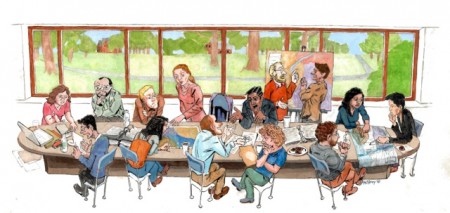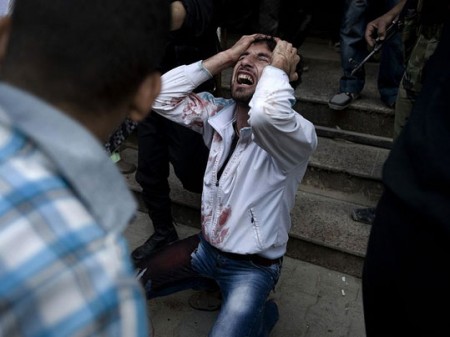
Illustration by Howard John Arey
Emotions are high and words are flying fast, when suddenly the head of the negotiation delegation gets up and leaves the room. There have been numerous tactical walk-outs during the past 24 hours of marathon negotiations to reach a peace agreement, but this time things are different. Just when the parties are close to signing, one of the delegations is told by their government to insist on an additional clause in the final document. The other party refuses to accept the change. The minutes tick by with frantic efforts by the mediator to find a last minute solution acceptable to all. However, all is in vain. The head of delegation feels it would be a bad deal for her constituency and she still distrusts the other side – so she walks out for good. Both parties blame the other side for the subsequent escalation of violence.




